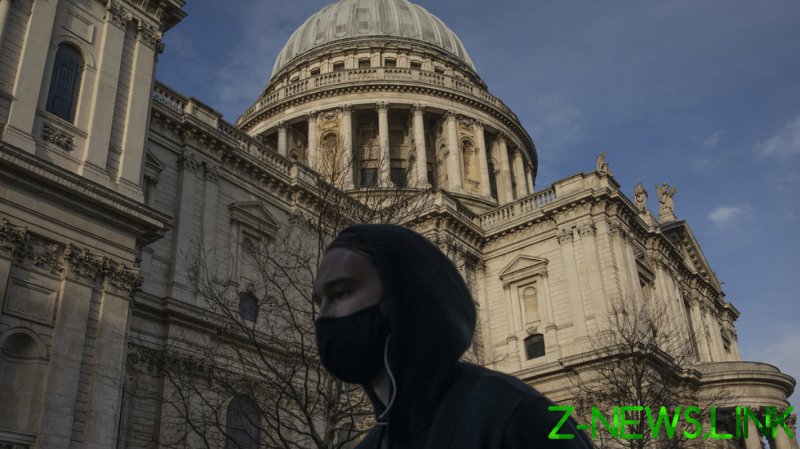
Why am I not surprised that mental health charities are now warning that the experience of coming out of the lockdown “could trigger anxiety for many”?
Because for decades and decades the mental health industry has worked overtime to convince us that just about anything in life can make us anxious and psychologically ill!
Throughout the lockdown, the mental health industry constantly warned us with catastrophic stories about the threat that the pandemic represented to our psychological well-being. Time and again, the public was told that massive resources would have to be mobilised to avert a mental health crisis. The Sunday Times conveyed a mood of panic when it published an alarmist narrative about the tortured life of lockdown teenagers facing deteriorating mental health.
As far as the Royal College of Psychiatrists was concerned, the closure of schools and the lockdown threatened to unleash a mental health crisis amongst young children that could damage them for life!
Now that the ending of the lockdown is in sight, mental health charities are busy inventing new problems to worry about. They claim that the return to normal life will be anything but normal. Expect “heightened levels of stress and anxiety”. One psychiatrist advises us to beware as lockdown ends in order to avoid “Reentry Syndrome”!
Psychiatrists and psychologists have an uncanny talent for making up new syndromes. My favourite syndrome is the Walkaway Wife Syndrome, which is not unrelated to the Bored Wife Syndrome. Since a syndrome is merely a set of medical symptoms, there are no limits to the numbers that can be invented to highlight our precarious mental state.
In the 21st century, a syndrome serves as a rhetorical device for drawing attention to a troublesome and even dangerous condition. It serves to turn experiences that were hitherto taken for granted into mental health issues.
Reentry syndrome illustrates how mental health entrepreneurs complicate our life. If you believe them, you could imagine that millions of people, having suffered in some sort of prisoner of war camp, are now wary of their liberation. Of course, most of us are anxious about knowing what life will be like on the other side of the lockdown. But people’s natural worry about the post-lockdown world coexists with the joy of knowing that they are finally going to get their life back.
So why is the mental health industry so devoted to turning a good new story into a cautionary tale about potential mental health problems? Why are these experts telling us that “uncertainty and disruption caused by a significant shift such as the end of lockdown could negatively affect people with no prior history of mental health issues”?
The reason why mental health entrepreneurs are so obsessively promoting their alarmist narrative is because they have lost sight of the distinction between health and illness. They have such a wide definition of well-being and mental health that virtually no one can claim to be free of some kind of psychological affliction.
Take the World Health Organisation’s definition of health. It states that “health is a state of complete physical, mental and social well-being and not merely the absence of diseases or infirmity”. In other words, the absence of sickness does not signify that you are healthy.
The growing tendency to erode the distinction between health and illness is underpinned by a radical redefinition of what it means to a person. In recent decades, the very idea of a person has been re-defined downwards to the point that mental health entrepreneurs can claim that people cannot be expected to make difficult decisions about life without professional support.
The classification of the normal experience of anxiety into a health problem is symptomatic of a therapeutic worldview that insists that people should not be expected to cope with making the transition from one point of life to another.
So even before the term Reentry Syndrome was invented, psychologists had succeeded, for example, in turning the transition from primary to secondary school into a problem.
Not so long ago it was assumed that children impatiently looked forward to going to the ‘Big School’ as much as we are to make the transition to the post-lockdown world. But that was then. Today:
“Researchers, teachers and policy makers regard the transition from primary to secondary schools as so ‘unsettling, daunting, stressful’ that it can de-motivate up to 40 per cent of 11-year-olds badly enough ‘never’ to recover, thereby causing a marked dip in formal achievement”.
This catastrophic representation of an experience that was previously regarded as unproblematic is ceaselessly recycled through the use of language that emphasises the unbearable psychological burdens borne by children. The primary-secondary school transition is sometimes expressed through the processes associated with loss, mourning and grief. Some experts advise secondary schools to provide pupils with the means to experience ‘closure’.
No doubt advocates of the threat posed by Reentry Syndrome will be working out ways that the public can experience ‘closure’ from the lockdown experience. And no doubt they will succeed in inciting some of us to feel that our normal anxiety is more than just normal and that therefore we need professional advice. My not so professional advice is to say: ignore them and enjoy that wonderful anxiety and sense of anticipation that comes with the glorious return to a lockdown-free world.
Think your friends would be interested? Share this story!
The statements, views and opinions expressed in this column are solely those of the author and do not necessarily represent those of RT.
© 2021, paradox. All rights reserved.





